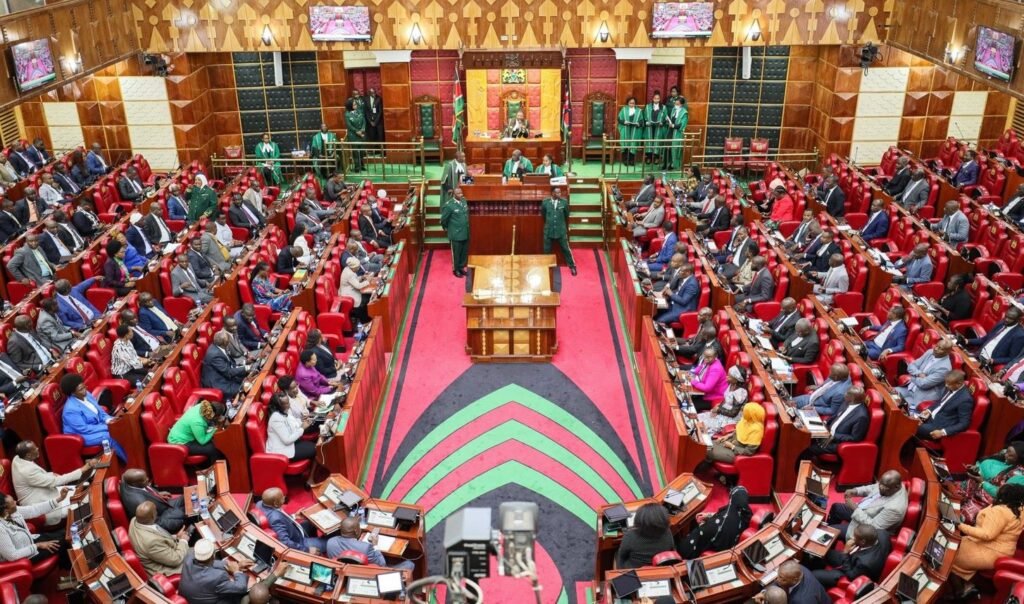Kenya’s contentious Finance Bill 2025 entered a critical phase on Tuesday as the National Assembly’s Finance and National Planning Committee launched nationwide public hearings.
Following a week of stakeholder consultations in Nairobi, the committee is now taking its deliberations directly to citizens—starting with sessions in Busia and Migori counties today and moving to Trans Nzoia and Nandi on Wednesday. Plans include hearings in at least 10 counties overall.
Committee Vice Chairman Benjamin Langat underscored the vital role of public input.
“This is not an exercise in futility; it’s a very important exercise,” Langat stated. “This Finance Bill is a proposal, and it has to undergo the necessary legislative process, including public participation, to become law.”
He assured citizens that their contributions would be integrated into the final report presented to Parliament and would directly influence the final proposals. Langat urged the public to view the tax proposals alongside the proposed budget estimates, highlighting the bill’s role in funding essential services such as hiring teachers and nurses.
The bill, which outlines how the government aims to raise revenue for the upcoming budget, contains several significant and controversial proposals:
1. 35% Excise Duty on Imported Gas Cylinders
This measure, reintroduced after first appearing in 2019, aims to promote local manufacturing of Liquefied Petroleum Gas (LPG) cylinders. However, the Kenya Association of Manufacturers (KAM) raised strong objections—particularly regarding industrial and medical gas cylinders.
KAM CEO Tobias Alando argued that these specialized cylinders are critical to the economy and health sector, are not manufactured locally or regionally, and should be exempt from the hefty tax. KAM further noted that the current East African Community tariff structure lacks a distinct classification for these cylinders compared to standard LPG ones.
2. Expanded Definition of “Royalty”
Clause 2 seeks to amend the Income Tax Act’s definition of “royalty” to include payments for software accessed through distributors. KAM fiercely opposes this and has called for the clause to be deleted.
Alando argued that the definition deviates from international best practices—particularly the OECD’s rights-based approach. Under that approach, only payments for the right to use copyrights (e.g., licensed software) qualify as royalties, not payments for the copyrighted product itself (e.g., pre-packaged software). KAM warned that the expanded definition would impose an undue tax burden and create inconsistencies with global standards.
3. Health-Focused Taxes
The International Institute for Legislative Affairs (IILA), represented by CEO Celine Awuor, advocated for stronger taxation on products posing public health risks.
Highlighting tobacco as a major contributor to non-communicable diseases (NCDs)—causing over 8,000 deaths annually in Kenya—the IILA also raised concerns about emerging nicotine products. They noted that taxes on items like oral nicotine pouches and electronic cigarettes remain “significantly lower” despite aggressive marketing. The organization suggested aligning taxation to curb consumption and mitigate health impacts. Their submissions also covered alcohol and sugar-sweetened beverages.
The committee emphasized that the diverse views gathered—both in Nairobi and now in the counties—are crucial for crafting effective legislation.
“The views will help enrich the law and ultimately produce policies that drive change rather than stifle the economy,” a committee statement affirmed.
As the hearings continue across the country, debates around the gas cylinder tax, software royalties, and health levies are expected to intensify—shaping the final version of the critical Finance Bill 2025 before it returns to the National Assembly for debate and voting.
Kenyans wishing to participate can scan a QR code provided by Parliament to access details on the ongoing hearings.
– By Nusurah Nuhu


